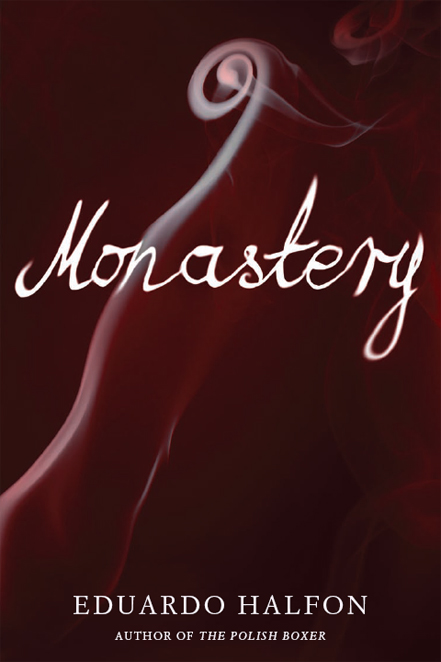
Monastery
- اطلاعات
- نقد و بررسی
- دیدگاه کاربران
نقد و بررسی

August 11, 2014
In this sequel to 2012’s The Polish Boxer, Eduardo, a secular Guatemalan Jew, has travelled to Israel to attend (or not) his sister’s wedding to an ultra-Orthodox man from Brooklyn. Along the way, he encounters a former girlfriend, the Wailing Wall, the “separation wall,” and the Dead Sea, all of which elucidate and complicate his thoughts on his own family history and sense of self. Most poignant are Eduardo’s moments of observation, such as when his sister’s fiancé brings him and his brother to watch the Haredi rabbi pray. As Eduardo and his brother leave the neighborhood that night, after the beginning of Shabbat, they are stoned for getting in a taxi. Eduardo’s brother’s reply is at once provocative and stifling: “whether you accept it or not, you’re as Jewish as all of them.... It’s in your blood.” But this logic of genetics, Eduardo thinks, comes too close to the Nazi line of reasoning. The novel is bookended by these resonant self-investigations, as well as contrasting snapshots of Israeli life. Less successful is the disjointed middle section, which is set in Central America in what seems to be the future but remains difficult to connect to the rest of the plot. Overall, however, Halfon gives voice to a lesser-known sector of the Jewish diaspora, reminding us in the process of the ways in which identity is both fluid and immutable.

October 15, 2014
With this sly, quietly penetrating account of life on the road-a quasi-fictional journey containing sharp reflections on his Jewish ancestry-gifted young Guatemalan writer Halfon picks up where he left off with his acclaimed The Polish Boxer (2012).The narrator declares himself a "retired" Jew who "can't imagine a prayer, any prayer, having a meaning more profound than a mother's good-night kiss." During a visit to Jerusalem to attend his rigidly observant sister's wedding, he feels nothing when he touches the Western Wall. But for all his coldness toward religion, and his claim that "every journey is meaningless," this descendent of Polish and Lebanese grandparents is inspired by his travels and moved by his far-flung encounters with people who radiate belief. They include a Harlem woman who hosts private jazz concerts in her apartment "as a way of surviving Sundays," having lost her son; self-sufficient coffee growers in Guatemala who believe the quality of their beans reflects their own inner values; and, in her own way, a flight attendant he runs into in Israel with whom he's had an oddly erotic encounter in the past. One of this author's special attributes is never forcing meaning on his experiences, letting us judge the mundane factor of certain moments. But he's also great at reversing our initial impressions of people and places. A stone-faced border guard who denies the narrator passage into Belize shows different colors in a barroom. In the end, Halfon says, "Everyone decides how to save themselves." We can only be happy he decided to become a writer. A rising star among Latin writers, Halfon is a lively traveling companion, even at his most pessimistic.
COPYRIGHT(2014) Kirkus Reviews, ALL RIGHTS RESERVED.

October 1, 2014
On a visit to Israel, the same protagonist of Halfon's 2012 The Polish Boxer hooks up with an old flame.
Copyright 2014 Library Journal, LLC Used with permission.

October 1, 2014
In this enigmatic follow-up to Halfon's lovely The Polish Boxer (2012), readers follow the same narrator as he journeys around Central America, Europe, and Israel. In each vignette, Halfon grasps at the tenuous links between places and the sometimes trivial barriers that separate them. We see him traversing the dividing line between a strict yeshiva in Jerusalem and its less orthodox neighborhood, touching the Wailing Wall in Jerusalem and buildings at Auschwitz, stuck at the border of Guatemala and Belize. He can't quite commit to an identity. Is he Jewish, like his relatives who fled Europe after WWII? Is he Guatemalan, as his passport says, or Spanish, according to his other passport? I am many, he says to the border agent, But today . . . I am two. As if slowly filling in negative space, Halfon gradually gives shape to the uneasy relationship he has with his own allegiances and heritage as well as the outsider position he occupies wherever he goes, even within his own country. A subtle work that defies easy categorization in the best way.(Reprinted with permission of Booklist, copyright 2014, American Library Association.)




دیدگاه کاربران